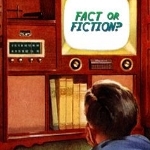
By Christina DesMarais for Techlicious
How to Sort Fact from Fiction Online
You can’t believe everything you read—especially when it’s online.
In fact, The Atlantic recently posted a story about a college professor who teaches a course in which he aims to help students become better consumers of historical information by encouraging them to create things like Wikipedia pages about fabricated people and events.
While Wikipedia—with more than 21 million articles (3.9 million in English)—can be a very useful and often trustworthy source of information, its contents can be written and edited by anyone. In addition to the possibility that a Wikipedia page could include inaccurate information that a volunteer editor doesn’t catch, some Wikipedia pages are biased or written in a way to show a person or company in a favorable light. For these reasons it’s generally not considered a reputable source for academic papers, for example.
But Wikipedia isn’t the only place on the Web where inaccurate information can live—far from it. In fact, if you really want to know if something you’re seeing online is true, your best bet is to do invest some time and do a bit of research.
Best resources for sorting fact from fiction — Article Continued Here
This excerpt appears with permission from Techlicious.




